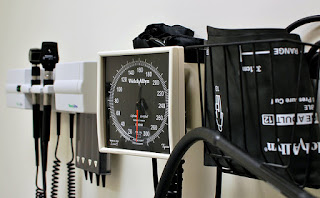 |
| Photo from meddygarnet via Flickr |
High blood pressure - as you likely know - is the leading cause of strokes. Once this becomes controlled, stroke risks get reduced.
How? One helpful tip is an obvious one: Take your medicine as prescribed.
Does someone you care about have a unpleasant side effect? That's entirely possible. But before abandoning hope, encourage that person to talk to a doctor. More and more research shows blood pressure control's importance - even if it's not super-high. Check out this recent story about high-risk patients should get blood pressure meds:
"Our findings clearly show that treating blood pressure to a lower level than currently recommended could greatly reduce the incidence of cardiovascular disease and potentially save millions of lives if the treatment was widely implemented," lead author Kazem Rahimi said in a journal news release. Rahimi is deputy director of The George Institute for Global Health at the University of Oxford in England.
At issue are patients with a history of heart disease or heart failure, kidney disease and/or diabetes. These patients are considered at "high risk" for heart attack or stroke.
The overall finding of the new study: For every 10 mm Hg drop in systolic blood pressure achieved through medication, heart disease risk dropped by as much as one-fifth. This was true regardless of the patients' blood pressure when treatment began, even if it was below 130/85.
No comments:
Post a Comment